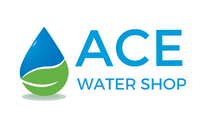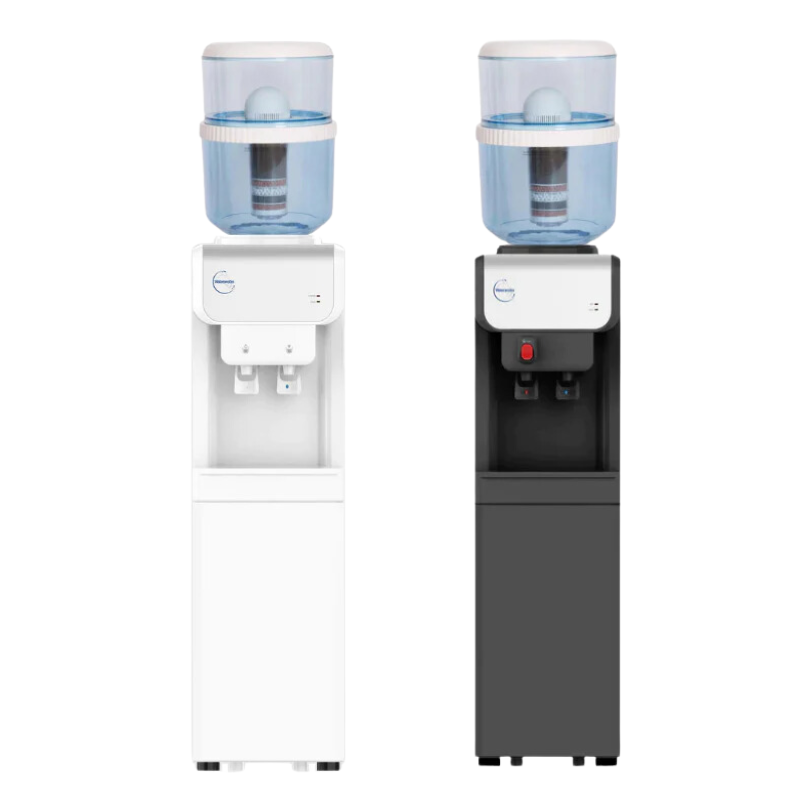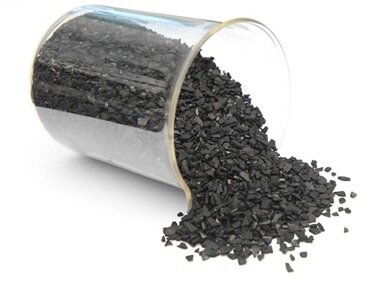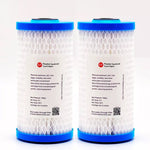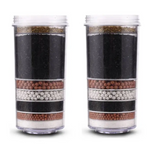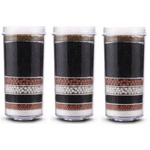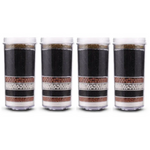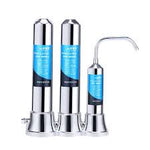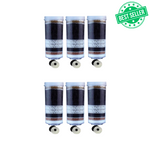You have no items in your shopping cart.
Carbon is found in charcoal. Activated charcoal contains carbon atoms that have been treated with oxygen to create millions of microscopic pores between them. Learn about the benefits of a charcoal water purifier for you and your family in this article.
Unique production processes create very porous charcoals with surface areas of 300-2,000 square meters per gram. People extensively use activated charcoals in the absorption of odorous or colorful chemicals from gases or liquids.
In this case, the word adsorb is key. It forms a chemical bond when a substance adsorbs something. The enormous surface area of activated charcoal means it has a lot of bonding sites. When certain compounds approach close to the carbon surface, they attach to it and become stuck.
Activated charcoal can trap other carbon-based contaminants (sometimes known as "organic") and chlorine. Many other compounds, such as salt and nitrates, have no carbon attraction and pass right through. It means that even an activated charcoal filter may eliminate some impurities, others will remain unaffected. It also implies that an activated charcoal filter will turn off once it fills all the binding sites. At that time, the filter will need replacement.

8 Stage Water Filter with activated charcoal
WHAT DOES AN ACTIVATED CHARCOAL WATER PURIFIER DO
The benefits of employing a charcoal water filter have been popular since ancient times. Activated charcoal sticks, for example, were used as water filters in 17th century Japan.
In addition to working as a water distiller alternative, activated charcoal adds extra minerals to the drink. The material can also capture pollutants found in freshwater, owing to its absorbing surface. Now, let's detail the advantages of the charcoal water filter at home.
ACTIVATED CHARCOAL WATER PURIFIER BENEFITS
Activated charcoal has a porous surface, as previously stated. It attracts contaminants to its carbon surface because of its huge surface area.
A filter built of this substance aids in the preservation of water's inherent characteristics. It can also benefit your health in a variety of ways. Here are a few more advantages of using charcoal water filters.
Better Water Quality
Charcoal filters can get rid of a lot of the bad stuff in your water while adding some nutrients to make it more good for you. Activated carbon can improve your water quality by replenishing vital minerals such as calcium, magnesium, and iron.
It accomplishes more than only filtration with charcoal filters. It enhances the quality of water by adding necessary minerals, for example. Iron, calcium, and magnesium are just a few examples. It also assists in the preservation of the water's nutrients while also improving its flavor.
Better Flavor
Are there any unusual odors in your tap water? Do you have a strange taste in your mouth? This situation could lead to the chemicals used in water treatment plants. Some people loves drinking from the tap, owing to its smell and taste. They’ll go hours without a drink in the end, particularly in the event that they portray some other supply of water.
With charcoal filters, it can swiftly eradicate the odor. They are capable of removing any flavor or color from city water. Finally, you'll have a refreshing glass of water.
Hating the taste of tap water is a common truism that many people believe due to a metallic taste or stench. Often it’s the stuff that’s been added to tap water to destroy bacteria and other “bugs” in reservoirs — chlorines, for example — that is responsible for the flavor. It is an underappreciated public health practice, but it tends to create avoidance of tap water drinking. It places them at risk of dehydration, or of purchasing plastic-bottled water, which is harmful to the environment.
Not only can charcoal filters remove these foul-tasting substances, they also do a great job getting rid of odors, leaving a glass of water substantially tastier to drink.
/female-hands-holding-a-clear-glass-of-water-a-glass-of-clean-mineral-water-in-hands--healthy-drink--1158040705-801a1dae31b24b7cbb353a4d62c8197e.jpg)
Cost-Efficient
Although many water purification systems are expensive, they are necessary for your home. The cost of producing charcoal filters, on the other hand, is low. So, the savings go back to the customer.
Every construction must have a water filtering system. You will, however, have to pay a significant sum of money because some models are extremely costly. If you're looking for a low-cost solution, then get a charcoal water filter.
Traditional systems are more expensive than these units. Finally, you'll have a superior filtration system for less money.
Retains the Good Stuff
If we looked at more than just the water, you know, hydrogen and oxygen the definitions of put in more other minerals, harmful compounds and contaminants. Most water filters, while they efficiently filter these contaminants, chemically or mechanically, tend to wash away a number of the vitamins and ions which are good for human health.
These filters attract and absorb hazardous organic molecules while leaving the remainder of the minerals in the water-based on activated charcoal's chemical composition and structure. Because it does not eliminate all pathogens or germs, some frequently use with another filter.
Freshwater minerals and salts can be beneficial to your general health. But, the water may contain harmful particles, rendering it unfit for consumption. A whole-house water filter can eliminate these contaminants.
Sadly, the purifier also removes vital minerals from the water. If you distill the water further, you will destroy all of the minerals in it. As a result, you will receive fewer benefits than expected.
Activated charcoal, on the other hand, assists in the absorption of minerals in the water. It achieves this by allowing toxins and particles to go through while trapping them beneath its surface.

Easy Maintenance
After investing a budget-friendly sum in the filter, you will spend a little less time caring for it. It doesn't need to be examined or repaired regularly, after all. To keep this item in good working condition, replace the filter element, specifically if it's worn out.
A fresh filter may have a lengthy lifespan. Check to see if it's still working after four months of use. You may extend the timeline because of circumstances.
If your home uses water heavily, you might have to change several filters in a relatively short period of time. If the water has an odd color, or taste though, you need to replace the unit.
You may have to replace the filter if you notice a reduction in water flow. It's especially essential when there's a lot of debris in the unit. Because the filter elements are affordable, you can immediately replace them.
Easily Works With Other Water Filters
You can add a charcoal filter to your building's water filtration system if it already exists. You can use this type of filter with a reverse osmosis machine, for example.
In a reverse osmosis water filter system, water passes through a semipermeable membrane at high pressure. During this process, it catches dissolved particles.
Because activated charcoal aids in the removal of pollutants, a RO system with a carbon filter lasts longer. By capturing big material, the charcoal filter safeguards the RO system from obstructions and extra labor. Furthermore, a hybrid of the two technologies can extract pollution traces.
Doesn't Need External Energy
There's no need to link this model to a power source if you wish to use it. Instead, the activated carbon and water pressure powers the filter. One of the most significant benefits of charcoal water purifiers is that they save money on utility bills.
Help Improve Dental Health
Hazardous materials and poor oral care can cause teeth discoloration. Fluoride in tap water, for example, can make any tooth look different.
Activated charcoal can aid in treating a range of dental issues, resulting in a more attractive smile. It removes any contaminants that could harm your teeth, for example. The device then cleans the teeth and removes foul odors by utilizing its functions.
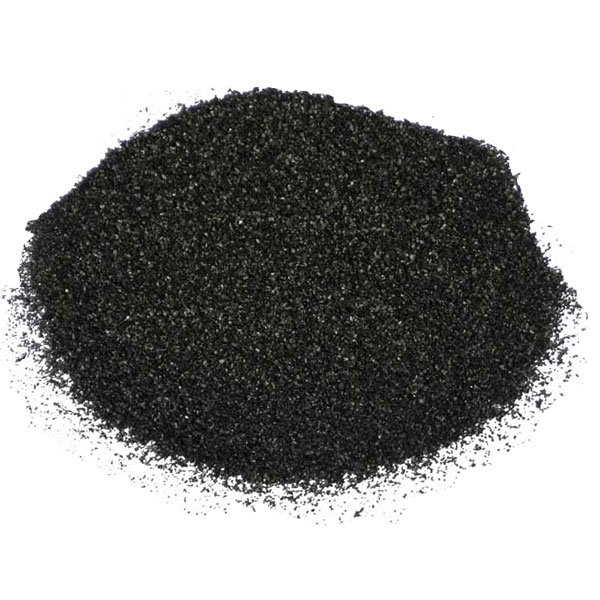
HOW DOES ACTIVATED CHARCOAL WATER PURIFIER WORK
Water filters, unlike traditional BBQ bricks, employ a different type of charcoal. Activated charcoal, either compressed into a single block or sold as loose beads, is used in water filters.

It induces charcoal activity by heating it over 1000 degrees Fahrenheit without oxygen. They’re then chemically shopped with argon and nitrogen to create a porous structure before being superheated with oxygen and steam.
This porous property of activated charcoal is important for charcoal water filterworks. Activated carbon works through adsorption process. These contaminants become chemically rather than physically bound, and thus they are adsorbed rather than absorbed.
This increases their adsorption capacity significantly and, due to the pores, activate charcoal has a surface area that can be anywhere between 800 to 2000 square meters/gram. It seems like a sandwich choice for the water filters. Not only is it natural, it is also effective at removing a variety of contaminants from water (including volatile organic compounds and chlorine) without using chemicals or stripping salts and minerals. Carbon in the charcoal will attracts the water-based organic pollutant.
Then, it quickly bonds to these impurities, as you may know from chemistry class. On the other hand, other chemicals are not attracted to the carbon and pass through the filter dependent on its molecular weight and polarity.
Since the method generates linkages between chemicals and maintains pollutants in the filter, you must replace charcoal filters once it fills the pores. Cleaning and replacing charcoal water filters are simple and inexpensive, making them a popular choice among many households.

FINAL THOUGHTS: Activated Charcoal Water Purifier
A charcoal water purifier is among the most prominent kinds of water filters available on the market for a good reason. Activated charcoal has numerous financial, environmental, and health benefits. Give charcoal water filter a try in your home today and notice the difference. Ace Water Coolers offers activated carbon in Australia. Please get in touch with us through or live chat agent.
